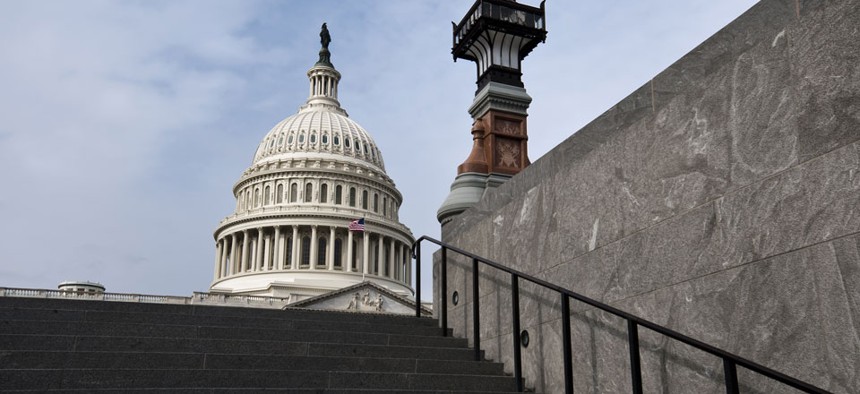IT Reform Act Heads to House Floor Tuesday

donvictorio/Shutterstock.com
Lawmakers also will vote on legislation to manage more Freedom of Information Act activity online.
UPDATE: House Passes IT Reform. Read our story HERE.
The House is scheduled to vote Tuesday on a bill that would revamp how the government buys information technology systems in a bid to strengthen the oversight of projects like HealthCare.gov and make a single person responsible for such projects’ success or failure.
Reps. Darrell Issa, R-Calif., and Gerry Connolly, D-Va., introduced the Federal Information Technology Acquisition Reform Act in March 2013, seven months before the government launched the deeply flawed website that consumers must navigate to sign up for health insurance under the Affordable Care Act.
Since HealthCare.gov debuted last October, Issa and Connolly have latched onto the high profile troubles of the Obamacare federal marketplace and President Obama’s admission that government should improve they way it buys technology as a rallying cry for the bill’s passage.
The pair issued a letter to colleagues on Monday urging passage of the bill and noting that experts say as much as one-fourth of the government’s $80 billion annual IT budget may be lost to inefficiencies and onerous contracting requirements.
“The Oversight and Government Reform Committee has held two committee hearings on the bill and the language has evolved through the course of several rewrites and extensive feedback from contracting and technology experts from inside and outside government,” the pair said. “This is a significant and timely reform that will enhance both defense and non-defense procurement.”
Issa chairs the oversight committee and Connolly is ranking Democrat on the committee’s panel on government operations.
A similar bill, known as the Federal Information Technology Savings, Accountability, and Transparency Act, was introduced in the Senate by Sens. Tom Udall, D-N.M., Jerry Moran, R-Kan., and Mike Johanns, R-Neb., in December, about two months after the HealthCare.gov launch.
The House version of the bill would limit each federal agency to one person with the title Chief Information Officer. It would give that person budget authority for the agency’s IT spending and make him or her responsible for IT projects’ success or failure.
The bill also would establish centers of excellence across government with expertise in certain types of IT procurement, require that 80 percent of government IT spending be tracked publicly on the Federal IT Dashboard, a government transparency site, and put the power of law behind a White House project to cut and consolidate federal data centers.
The Senate version of the bill would also mandate a single CIO for each federal agency but it would only give those CIOs budget authority for commercial, off-the-shelf items and require that they play a major role in budget decisions about other IT purchases.
The Senate bill would also give CIOs hiring authority for agency staff with IT responsibilities and require that those staffers report to the CIO to the extent the CIO deems sufficient. That bill is awaiting action in the Senate Homeland Security and Governmental Affairs Committee.
A separate version of the House bill was tacked on as an amendment to a military policy bill, the National Defense Authorization Act, in late 2013 but stripped out during final negotiations.
The White House has avoided public comment on the bill, though federal Chief Information Officer Steven VanRoekel has said giving agency CIOs budget authority is less important than giving them “a seat at the table” when major decisions are being made.
The House is also scheduled to vote Tuesday on the FOIA Oversight and Implementation Act, sponsored by Issa and the oversight committee’s ranking member Elijah Cummings, D-Md.
That bill would expand the use of FOIA Online, a Web tool for citizens to file, communicate about and receive responses to Freedom of Information Act requests. The tool would allow agencies to share information about requests and cooperatively manage requests that cross agency lines of jurisdiction, though it’s only being used now by a handful of agencies.
The FOIA oversight act would grant the Office of Government Information Services, which was established as a sort of FOIA ombudsman in 2007, to report directly to Congress rather than first passing its reports and recommendations through the White House’s Office of Management and Budget.
(Image via donvictorio/Shutterstock.com)






